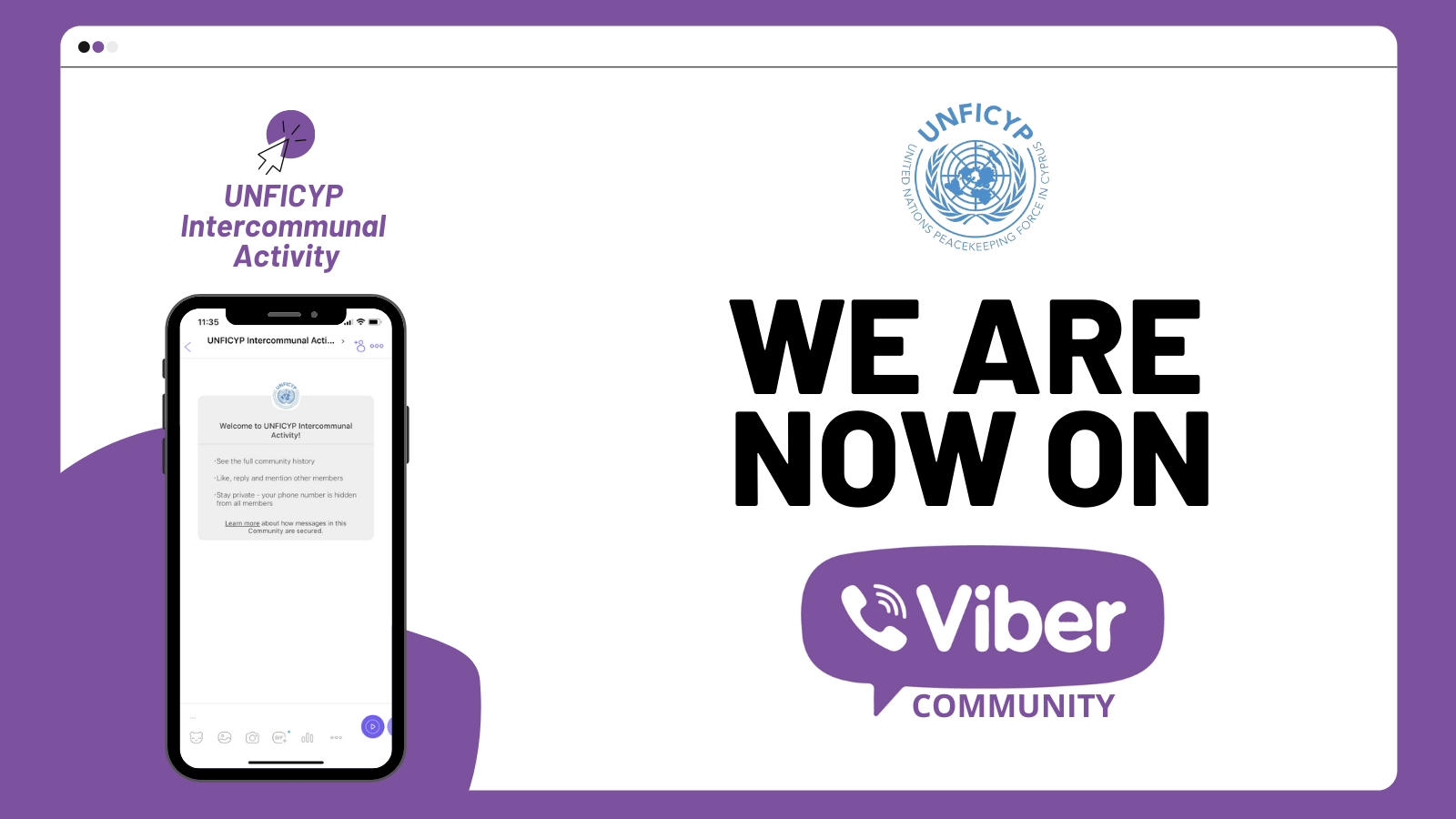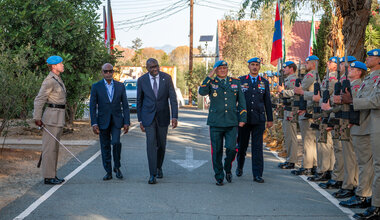Peacekeeper Profile: Maarten Magee
Major Maarten Magee, from the United Kingdom, joined the British Army in 2006 to undertake the Regular Commissioning Course at the Royal Military Academy Sandhurst and was commissioned as a Second Lieutenant in 2007. While Maarten has served in Afghanistan and been deployed to various international trainings, UNFICYP is his first experience with United Nations peacekeeping. Here, he speaks about what it means to serve for a cause that aims at improving conditions for some of the world's most vulnerable populations.
Q: Tell us a bit about your work with UNFICYP.
I am Officer Commanding of the Mobile Force Reserve (MFR) for UNFICYP headquarters. We form the Force Commander’s primary contingency military element and have various tasks and responsibilities. This includes being able to respond rapidly to any emergency situation on the island in support of the UN. As a result, we are held at a state of very high readiness and training to ensure that we can quickly respond to any crisis ranging from public order issues, to fire and disaster relief and everything in between.
Q: What, do you feel, are some of your biggest achievements in your career with UN peacekeeping?
Since UNFICYP is my first deployment with the UN, I have only been in the role for two months. But even in this short span of time, being able to reorientate my team to deliver a role with which they are not familiar has been significant. Every member of the MFR has embraced the challenge and gained some invaluable experience from it. We have worked exceptionally hard to understand what it means to be a peacekeeper in a complex, politically sensitive area of operations such as Cyprus. This has been the highlight of my time so far.
Q: Could you tell us a bit about the challenges faced and sacrifices made by peacekeepers across the globe?
We tend to join the British Army to work and deploy on operations in a specific role. In the case of my Battery, we are Gunners and so would generally expect to deploy in a more conventional operation, in our primary role.
The requirement to retrain, adjust to the requirements of the UN, and learn a completely new set of skills has been challenging. That said, we also joined the Army to make a difference and will go anywhere to do what is required of us; whichever mission we are deployed on we will always embrace the opportunity it affords.
In terms of the sacrifices involved, deploying as a UN peacekeeper comes with the usual disadvantages of any long-term deployment. Many of us have partners, are married, have children. It is never easy to leave loved ones and life at home for months on end. In many ways, it is our friends and family who suffer the most while we have these remarkable experiences.
Q: Would you encourage more people to join peace operations worldwide? If yes, why?
Working with the UN provides a tangible sense of doing something worthwhile that genuinely benefits many. I am delighted to be part of the fascinating and important mission in Cyprus, and certainly feel the significance of the responsibility we hold as peacekeepers in the Buffer Zone.
If one wishes to do something meaningful which is, in theory, elevated above national or regional political agendas, and specifically designed to improve the lives of many, then peacekeeping missions should be considered.
For my Battery and I, the benefits of integrating with our UN colleagues, changing our role, understanding what peacekeeping is about and investing in the mission are obvious. We have acquired new capabilities and sharpened old ones, improved our understanding of other nations and militaries, as well as been exposed to the work of our police and civilian colleagues.
This deployment is a broadening experience. Being part of something greater than ourselves is something we can all be proud of.
 UN
UN United Nations Peacekeeping
United Nations Peacekeeping






